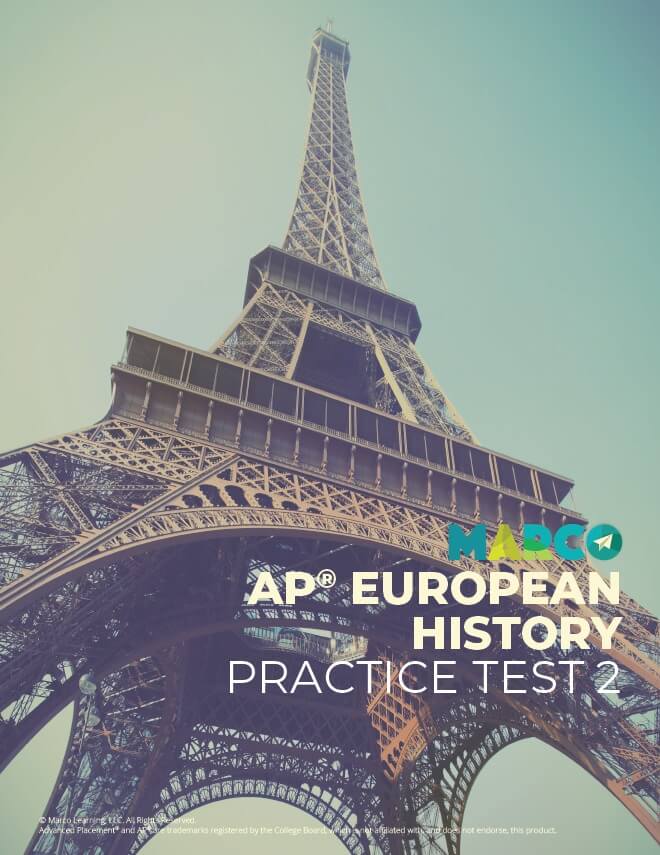


EUROPEAN COMPETITION IN THE 18th CENTURY
In the 18th century, intellectual movements like capitalism helped European countries expand their commercial systems into a worldwide network of trade. Commercial rivalries developed among European states, with much of the conflict rooted in the question of who should control lucrative trade routes. After much diplomatic and economic maneuvering, the Dutch gained almost complete control of the East Indies and Britain extended its dominion into India.
France challenged the growing power of the British Empire in a series of conflicts fought both in Europe and in the Americas. The tension between the French and Indian War reached its height in the Seven Years’ War. France also provided substantial financial and military aid to American colonists as they rebelled against British rule in the American Revolution. Even with the loss of its colonies in North America, Britain was able to maintain an empire so vast that it was said that “the sun never sets on the British Empire.”
ROMANTICISM
The rise of Romanticism was a response to the emphasis on rationality in the Enlightenment. It glorified emotion and individualism by lifting up natural and aesthetic experiences. In literary arts, William Wadsworth and Samuel Coleridge’s text, Lyrical Ballads, provides a clear expression of Romantic ideas by arguing that poetry was the “spontaneous overflow of powerful feelings.” A similar emphasis on emotion is also seen in Caspar David Friedrich’s painting Wanderer Above the Sea of Fog, in which a man gazes down from a mountain top into a sea of fog, alone and lost in his feelings.
THE FRENCH REVOLUTION
The French Revolution exploded in the 18th century as a result of a combination of long-simmering tensions among the French social classes and short-term fiscal and economic crises that upset the delicate balance necessary to maintain peace among the population. Enlightenment ideas questioned the ancient régime that categorized society into three groups—clergy, nobility, and everyone else—that were all given equal political power despite their disparate populations. When France was forced to raise taxes to compensate for its expenditures helping American colonists, the additional taxes were too much for the population to bear. The French Revolution began when the bourgeoisie forced the French monarch to accept limitations and become a constitutional monarchy.
The initial liberal phase of the French Revolution established a constitution, abolished hereditary noble privilege, and nationalized the Catholic Church, but these attempts at reform were quickly supplanted by a more radical phase dominated by the Jacobins and the sans-culottes. The Jacobin leader, Maximilien Robespierre, led a government that used violence, especially through summary executions by the guillotine, to eliminate any person associated with pre-Revolutionary French ideas. The “Reign of Terror” of Robespierre lasted approximately five years before it was replaced by the Directory and the subsequent rise of Napoleon Bonaparte.
NAPOLEON BONAPARTE
Napoleon Bonaparte emerged as leader of France out of the turmoil of the French Revolution, quickly rising from his role as a military leader in the French Revolutionary Wars to becoming Emperor of the French in 1804. The Revolution had broken down the traditional institutions of France, and in doing so it had destabilized the sense of what it meant to be part of the French nation. Napoleon rose to power by claiming that the new nation emerging from the revolution could live up to the revolution’s ideas of equality, fraternity, and liberty.
As emperor, he used his unchallengeable authority to impose a series of social and cultural reforms. He aligned himself with the Catholic Church, but followed the pattern of other enlightened absolutist monarchs by allowing religious tolerance. He implemented the Napoleonic Codes, which applied a single set of laws that applied to all members of society equality. Although Napoleon was almost universally opposed by the European aristocracy, he was able to use his popularity within France and the strength of the French military to dominate European politics.
Ideas about empire, rooted in competition over global markets, combined with long-term and short-term factors to destabilize France’s role in Europe. Within France, Enlightenment ideas motivated the French Revolution, which included both liberal and radical phases.
CAUSATION
Napoleon Bonaparte imposed a sense of order on the French after the French Revolution, but he was seen as a threat by other European nations who conspired to overthrow him and develop a more favorable balance of power at the Congress of Vienna.
THE CONGRESS OF VIENNA
The political upheaval of the French Revolution, in combination with its ideas of social equality and the abolition of hereditary privilege, was incredibly threatening to surrounding European nations. Many European leaders felt that ideas of equality enshrined in French documents like the Declaration of the Rights of Man and the advocacy for women’s rights by French revolutionaries like Olympe de Gouges could permanently upset established political institutions throughout Europe.
When Napoleon was finally defeated, the European aristocracy seized the opportunity to create a new European order at the Congress of Vienna under the conservative leadership of Prince Metternich of Austria. The Age of Metternich, which ran from the end of the Napoleonic Wars in 1815 to the start of the revolutions of 1848, saw the development of a conservative ethos across Europe that opposed revolutionary movements, attempted to weaken the forces of nationalism, and used the political authority of Prussia, Russia, Britain, France, and Austria to maintain the balance of power. The balance of power established at the Congress of Vienna led to unprecedented stability in European politics for several decades.
TIMELINE
1763 The Seven Years’ War comes to an end, leading Britain to take on an increased role in European politics.
1789 The French Revolution begins. The initial liberal stages of the revolution are followed by more radical and violent stages.
1794 Maximilien Robespierre was executed, ending the “Reign of Terror” in the French Revolution.
1804 Napoleon Bonaparte declares himself Emperor of the French. He immediately establishes the Napoleonic Code.
1815 The Congress of Vienna concludes and imposes a conservative balance of power across Europe through the mutual agreement of the Great Powers of Austria, Britain, France, Russian, and Prussia.
The best way to get better at something is by practicing.
That’s why it’s so important that you take practice tests to help you get better at the AP European History Exam. Only then can you expect to get a good score—and even improve your score.
Download your free AP® European History practice test HERE.
Download your printable study guides for all of the units for AP European History HERE.
 Help
Help